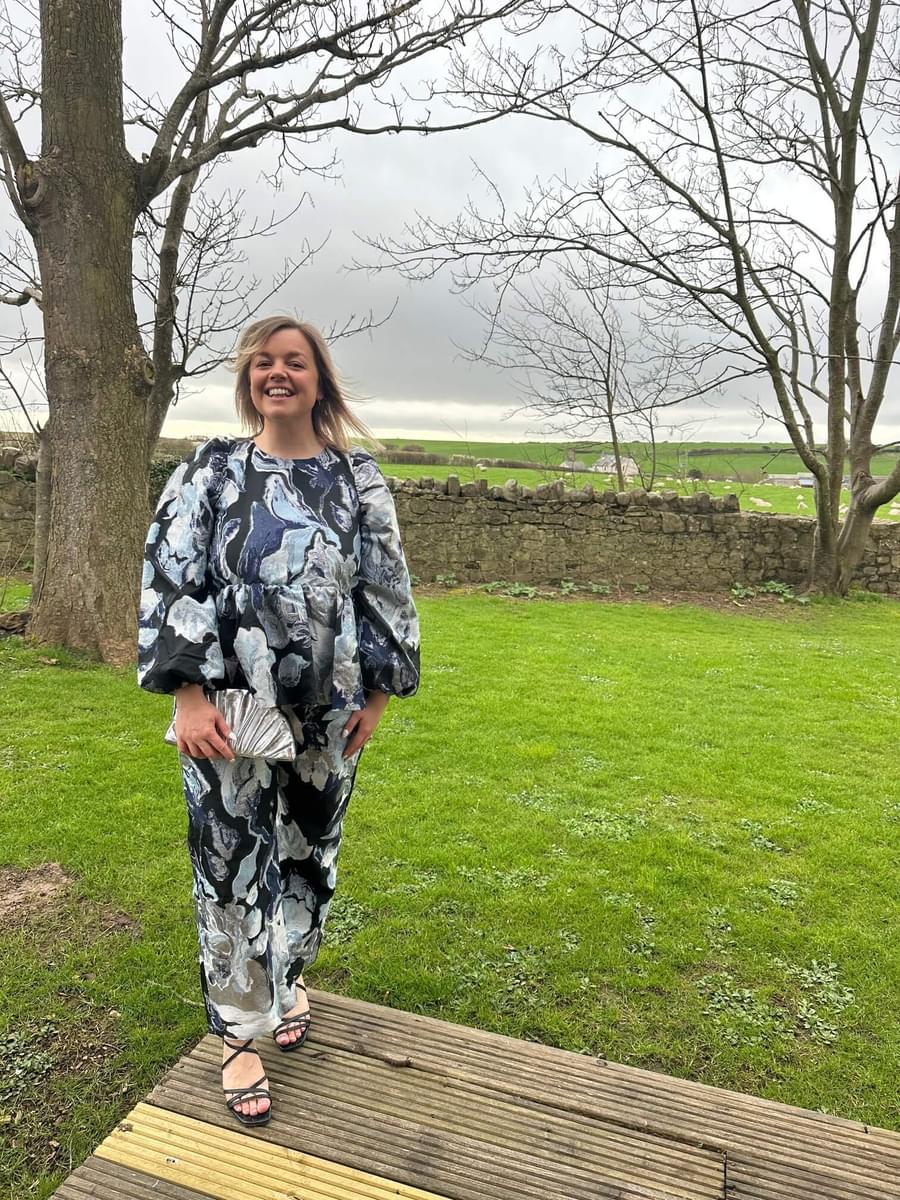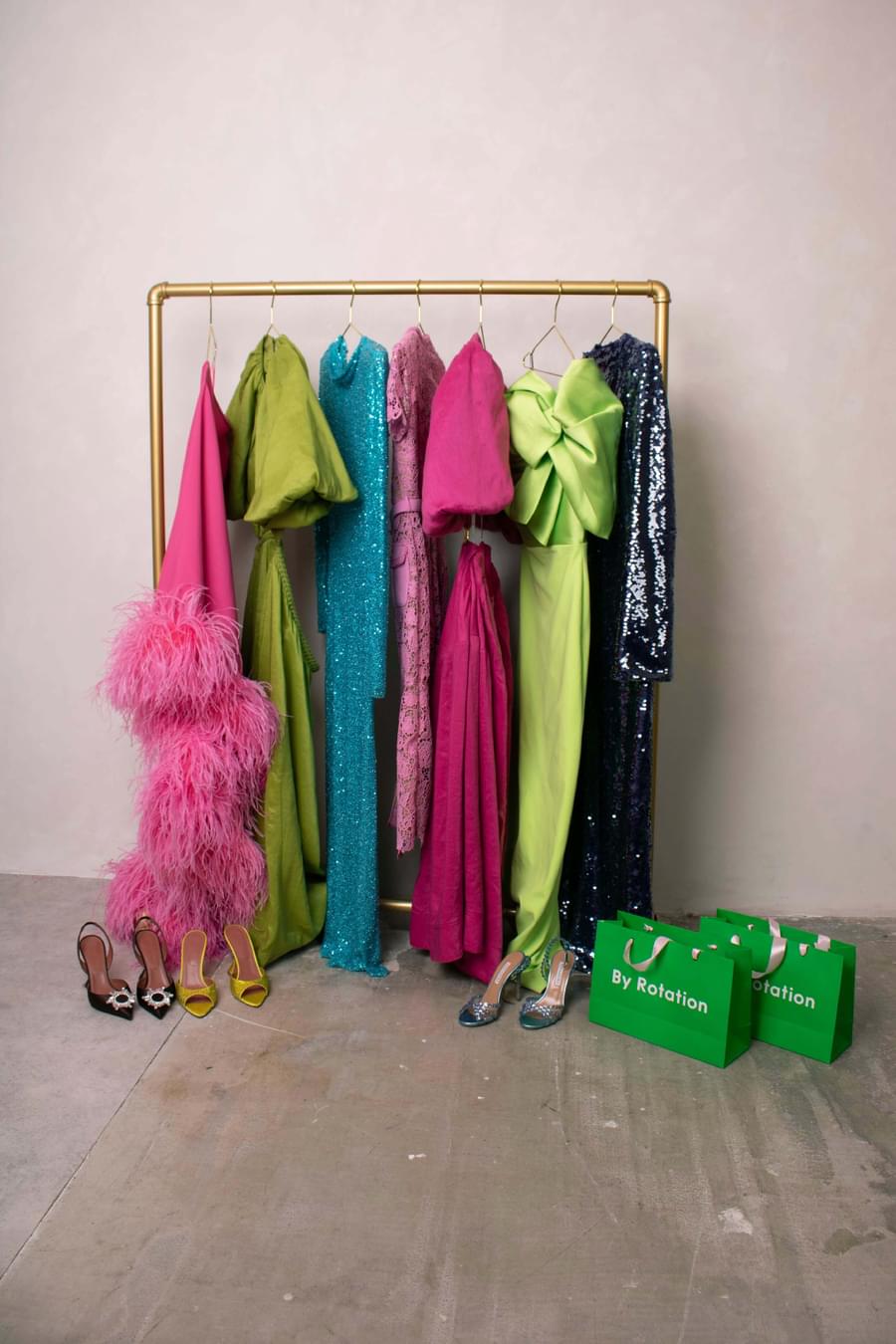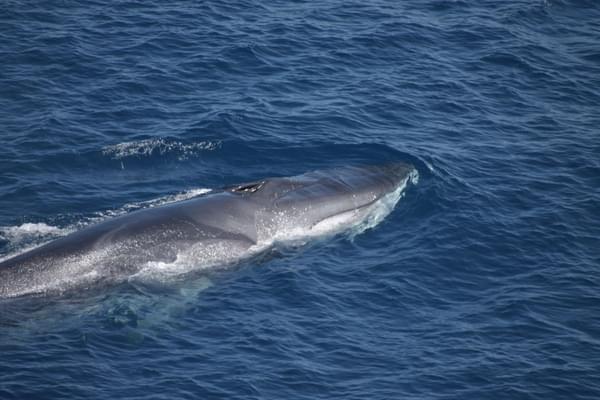Here in the ORCA Office, we are always striving to think of more ways that we can reduce our impact on the environment, whether that’s our commuting habits, food and packaging choices for our lunches and the efforts we go to to recycle. We always get asked by attendees of our training courses and school sessions “What can I do?”, so we always like to recommend achievable ways everyone can do their bit for the planet.
Our own Anna Bunney, Head of Education, in the last few years has been exploring the world of sustainable fashion.

Anna says “I made a New Year’s Resolution in 2022 to reduce the amount of new clothes I was buying, to buy as much as I could second-hand and to only buy items that I knew I would get a lot of wear out of. At the same time, during a year that was very busy for attending weddings, I explored renting outfits, too. I must admit that this was a financial choice as well as something I knew would make a difference to my environmental footprint. This decision was made after learning more about the devastating impacts of fast fashion.”
In a nutshell, fast fashion outlets produce thousands of garments at a rapid pace, with a huge carbon footprint. These items have a short life-span, often ending up in landfill very soon after they were produced. The dyes used are toxic, which leach into our waterways, and the garments are synthetic, so are made of plastic and therefore do not decompose. Specifically to the ocean ecosystem, these synthetic materials release microplastics into the ocean when they are washed. It’s estimated that washing synthetic clothes releases 500,000 tons of microplastics into the ocean each year - that’s the equivalent of 50 billion plastic bottles.
One of the other ways that Anna has reduced her consumption is by renting clothes. In 2022, Anna discovered By Rotation, a peer-to–peer fashion rental platform with zero stock, emphasising a community-focused approach to fashion consumption. By Rotation was founded by Eshita Kabra-Davies, who on her travels around India was moved by the amount of textile waste she witnessed.
“I founded By Rotation as a side hustle and really as a first world problem. I wanted to wear nice, new designer clothing when I was planning my honeymoon. I started researching the global fashion rental landscape and noticed a gap in the market in the UK and Europe. It wasn’t until my honeymoon that I witnessed textile waste in my hometown in Rajasthan, India that I realised how wasteful the fashion industry truly was, and how I could turn the idea of fashion rental into more than just access to luxury fashion but make it more about circularity, sustainability and community.” - Eshita Kabra - Davies, Founder of By Rotation

Anna is also a lender on the platform, often heading to the post office on her lunch break to post out items to renters! It’s also an amazing community, and Anna is one of By Rotations 2024 Ambassadors.
Renting out an item, for a wedding for example, is all about circular fashion - you don't need to buy something new, it prolongs the life of quality items and prevents there being a dress hanging in your wardrobe that you’re never going to wear again - it's the most sustainable choice. The By Rotation community has prevented an astonishing 100km worth of textile waste from going to landfill. There will be an estimated 2.2 million weddings in 2024. If at just one of these weddings, 25 guests wore rented dresses, they would save the same carbon emissions as taking a round-trip flight from London to Mykonos.
Anna continues “I have learnt so much about fashion, researching the companies that I purchase from, the materials that clothes are made from, finding such satisfaction from buying second hand and focussing more on quality over quantity. I would urge you to do more research into the brands you’re purchasing from, and research their sustainability pledges.”

Pollution in our oceans is hurting whales and dolphins across the world. Whether its chemicals amplified through the food chain or plastic being eaten by whales and dolphins, for some populations already on the edge, pollution is a significant threat. Donate today at www.orca.org.uk/donate to support our work and help put in place new protections for whales and dolphins around the world.

